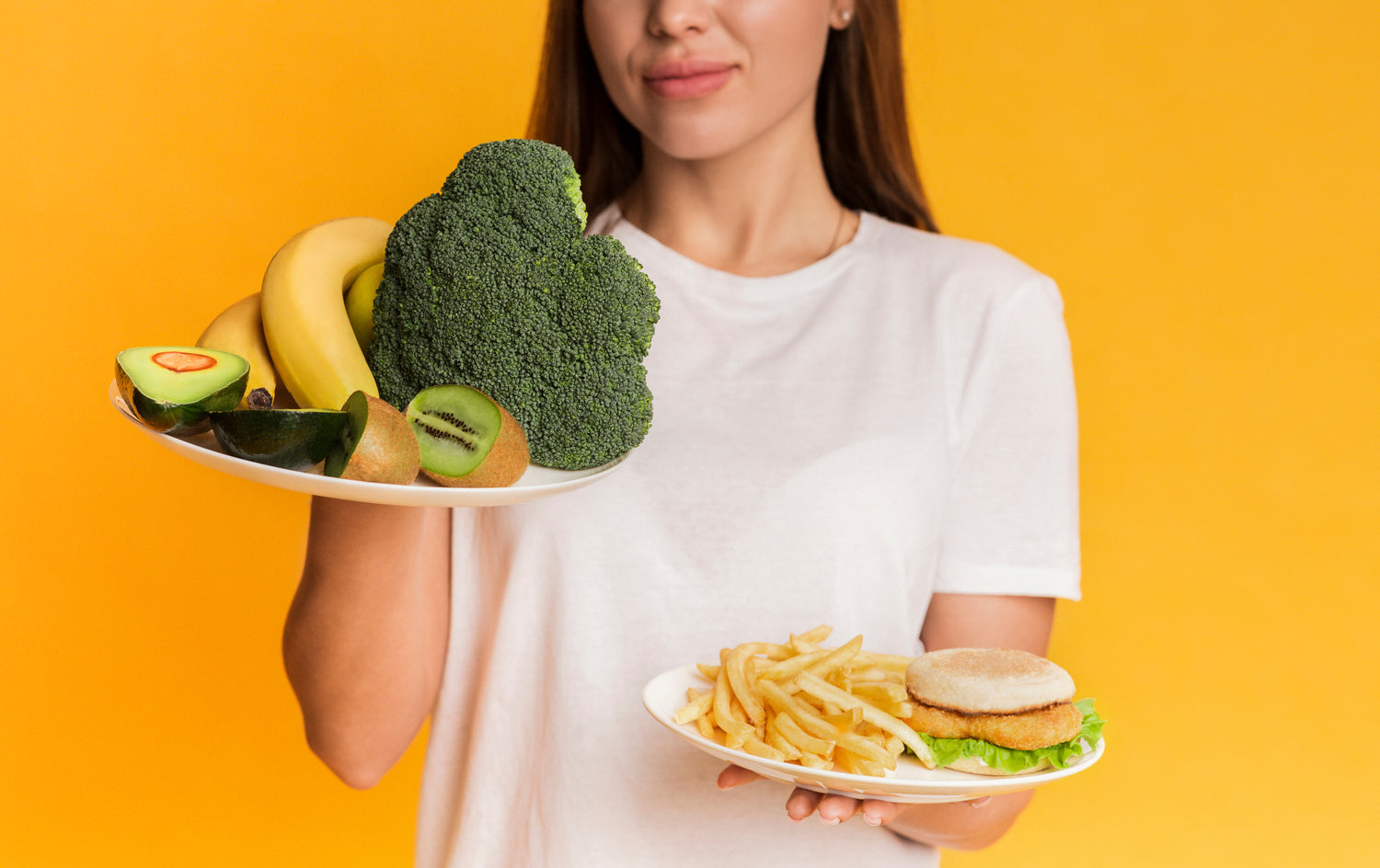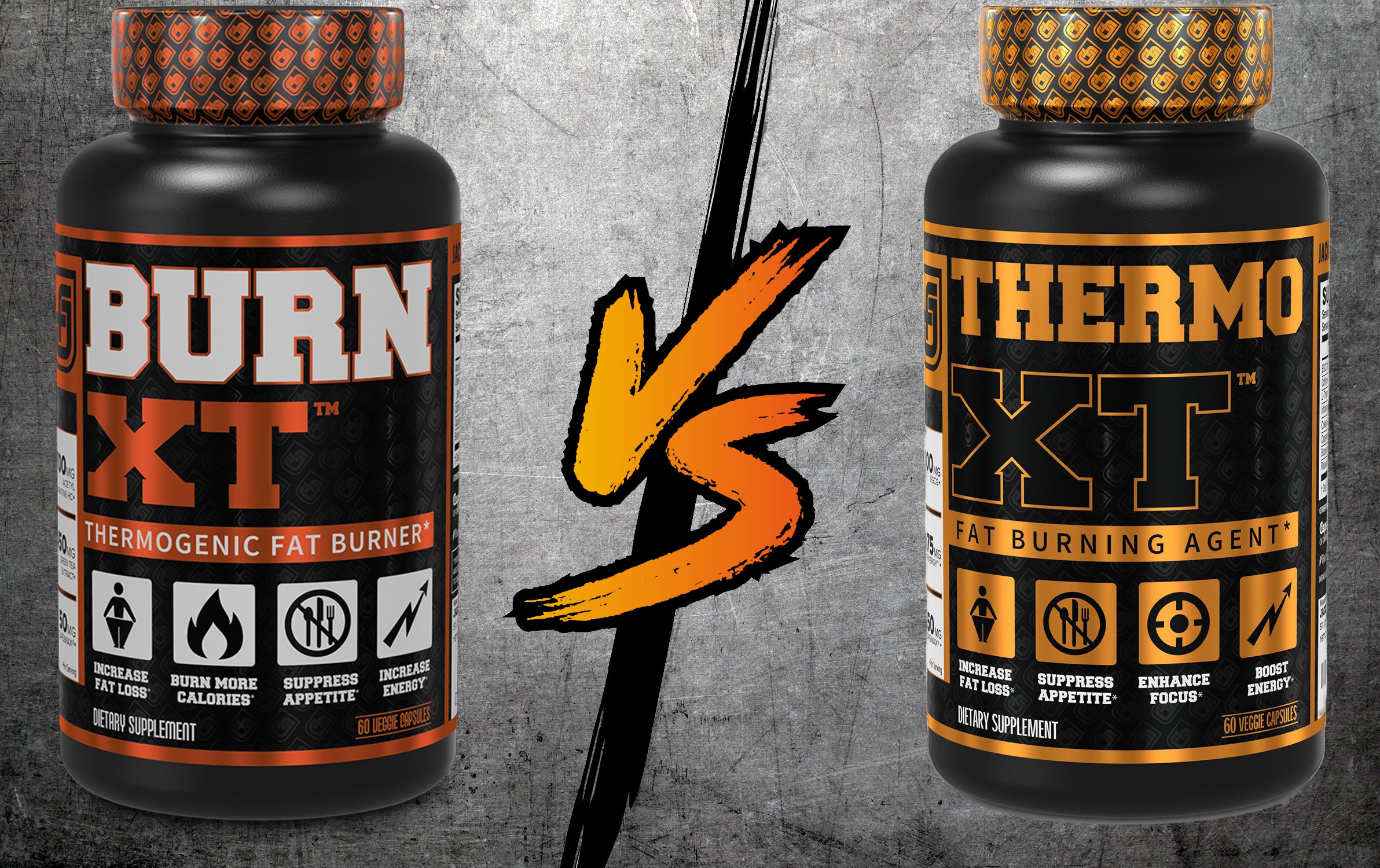What Are the Best Foods for Weight Loss?
Losing weight can be quite a frustrating process, especially when you’re paying your dues in the gym and not seeing the results you expect. Many people make matters worse by overcomplicating things, wondering if there's a special diet or nutrition secret they're missing out on instead of the obvious solution: eating fewer calories.
An immutable fact of life is that you need to be in an energy deficit (i.e. burning more calories than you consume) to lose weight and cut body fat [1]. The foods you eat are secondary to that.
So, the best foods to eat for weight loss are those that are nutrient-dense, relatively low in calories, and highly satiating. Emphasizing these foods can help curb appetite and hunger pangs that naturally arise on a low-calorie diet.
Read on to learn more about which foods to eat to lose weight and how to balance your nutrition plan for sustainable results.
The Best Foods to Help You Lose Weight
The foods listed in the "Lean Protein" and "Complex Carbohydrates" sections below are generally the best for weight loss because they are a) high in protein and fiber, and b) lower in calories per gram than fattier foods.
According to research, diets high in protein and fiber are favorable for weight loss and improving body composition, likely because protein and fiber are more satiating per gram than fats, starchy carbs, and simple sugars [2, 3].

Protein also has the greatest thermic effect of feeding (TEF) of any macronutrient, meaning your body burns more calories to digest and assimilate protein than it does carbohydrates and fat [4]. However, fat and starchy carbs aren't inherently a bad thing on a weight-loss diet. The key is where your fats and carbs come from.
Whole grains, like oats, quinoa, and barley, are good sources of slow-digesting carbohydrates and high in fiber. Thus, these foods don't have as harsh effects on blood sugar and insulin levels as those that are high in simple sugars [5].
Likewise, omega-3 fatty acids and monounsaturated fatty acids from nuts, avocados, and olives are frequently referred to as "healthy fats"; people who get more of these fats in their diet tend to have better heart and metabolic function than those who consume a diet high in saturated fats from fatty meat cuts and dairy products [6]. (Refer to the "Healthy Fats" section below.)
Just remember that fat contains nine calories per gram, whereas protein and carbohydrates provide four calories per gram. Hence, it's not uncommon for people to unwittingly eat too many calories when snacking on fat-dense foods like nuts and seeds throughout the day.
For example, a handful of almonds (28 grams) will tack on almost 170 calories in a hurry [7]. And we all know how easy it is to mindlessly reach back in the bag for multiple handfuls without thinking twice.
On that note, here are some of the best foods to eat to lose weight:
Lean Protein
- Chicken breast (skinless)
- Turkey breast (skinless)
- Ground turkey (>93% lean)
- Ground beef (>93% lean)
- Lean steak cuts
- Seafood (e.g. salmon, tuna, shrimp)
- Egg whites (whole eggs are fine and also a good fat source)
- Plain low-fat Greek yogurt
- Low fat/fat-free cottage cheese
- Authentic Whey Protein Powder
- Authentic Casein Protein Powder
Complex Carbohydrates
- Sweet potatoes/yams
- Quinoa, barley, couscous, etc.
- Oats and oat bran
- Beans and lentils
- Cold cereal (watch out for added sugars in these)
Healthy Fats
- Avocados and avocado oil
- Olives and extra-virgin olive oil
- Nuts: almonds, cashews, walnuts, macadamia nuts, etc.
- Nut butter: peanut butter, cashew butter, almond butter, etc.
- Seeds: chia seeds, sesame seeds, flax seeds, etc.
- Fresh/aged low-fat cheese (any variety)
Fruits and Vegetables
In reality, pretty much all fruits and vegetables can help you lose weight. Most people don't eat enough of these foods, to begin with, so it's absurd to consider them "off-limits" on a weight-loss diet. Remember, a key component of long-term weight loss is sustainability. Driving yourself mad by nitpicking over the minute details of every fruit or vegetable you eat is unlikely to be sustainable.
Sure, certain varieties of fruits and veggies may be better for losing weight due to their fiber, vitamin, and mineral content. Still, we can safely say that eating, say, 100 grams of blueberries instead of 100 grams of kiwi, or 100 grams of Brussels sprouts instead of 100 grams of carrots, is not going to be why someone does or doesn't lose weight. Case in point, a recent meta-analysis of randomized clinical trials found consistent evidence that increased intake of FV (fruit and vegetable), regardless of type, is a primary contributor to weight loss [8].
Monitor your calorie and macronutrient intake, and include 5-6 (or more) daily servings of fresh or frozen fruits and veggies in your diet (some new evidence suggests that 9-13 servings may be prudent for overall health and longevity) [9]. Supplementing a greens powder can make it easier to meet those numbers.
If you want more specifics, here are some vegetables and fruits that are generally the "best" foods for weight loss:
Cruciferous Vegetables and Leafy Greens
Veggies like spinach, broccoli, cauliflower, and cabbage are great foods for weight loss since they are high in fiber, low in calories, and nutrient-dense. For example, an entire bunch of broccoli (~600 grams) provides nearly 16 grams of fiber and 17 grams of protein but only contains about 200 calories [10].
Most people wouldn't even be able to eat that much broccoli in one sitting because of how filling it is. The same goes for leafy greens like spinach, collard greens, and lettuce.
More importantly, cruciferous veggies and leafy greens are some of Mother Nature's best sources of micronutrients, particularly vitamin K, magnesium, iron, vitamin C, and folate (vitamin B9). You really can't go wrong by incorporating multiple servings of these vegetables into your weight-loss diet.
Fibrous Fruits
Let's be real: nobody has ever gotten fat from eating too much fruit. It's bizarre to think fruit gets demonized as being bad for weight loss because it contains sugar, specifically fructose. That paints a completely misguided picture of the nutritiousness of fruits, especially nutrient-dense varieties like blueberries, apples, watermelon, grapefruit, and cantaloupe.
Not only are most fruits packed with essential vitamins and minerals, but they are also exceptionally satiating due to their water and relatively high fiber content. As such, most people can benefit greatly by including a few servings of fruit in their weight-loss diet. In fact, 100 grams (~1/3 cup) of fresh blueberries pack upwards of 3 grams of fiber and just 60 calories [11].

Moreover, the sugar in fresh and frozen fruit is naturally occurring; not the same as added sugar — usually sucrose (table sugar) — you find in most fruit snacks, dried fruits, canned fruits, and fruit juices. Stick with the unadulterated stuff and you'll be just fine.
Lastly, research shows that consuming fructose with non-fructose carbohydrates increases the former's absorption [12]. In other words, starting your meals with a couple of slices of fruit can help offset any potential fructose malabsorption and promote satiety.
The above is really a long-winded way of saying it's silly to avoid fruit when you're trying to lose weight. Per gram, most fruits are lower in calories, higher in fiber, and richer in micronutrients than other foods. The fructose content will not magically lead to weight gain or impede weight loss so long as you're controlling your overall calorie intake.
A Healthy Diet is Not Necessarily More Restrictive
Many people fall into the trap of thinking that healthy eating means cutting out all "junk" foods. Consequently, they limit themselves to an arbitrary selection of "clean" foods in hopes of losing weight rapidly.
While it's sensible to limit your intake of processed and empty-calorie foods like candy, ice cream, soda, and fried potato chips on a weight-loss diet, there is a happy middle-ground to be found. In most cases, the less stringent you are about food choice, the more likely you will stick to your diet in the long run [13].
There's no reason you can't enjoy "less-wholesome" foods in moderation and still achieve your ideal body weight. Remember, calories in vs. calories out is ultimately what determines whether you lose weight, gain weight, or stay the same.

You can eat all the "clean" foods you want and still overeat, just as you can lose weight while eating "junk" foods. To prove this point, a nutrition professor by the name of Mark Haub went so far as to subsist predominantly on Twinkies, Doritos, powdered donuts, and other snack foods for 10 weeks. Sure enough, he made it to his goal by losing 27 pounds in that time.
Now, does that mean you should go out of your way to eat Twinkies and donuts on a weight-loss diet? Of course not. There are undoubtedly benefits to "cleaning" up your nutrition habits, and eating mostly foods that are relatively low-calorie, high-protein, and fiber-rich will help curb appetite. Managing cravings is arguably the most challenging hurdle on a weight-loss diet, and the odds are sugary snack foods won't fill you up like more nutrient-dense whole foods will.
But again, healthy nutrition is all about finding a balance and controlling your calorie intake. Whatever foods you eat to meet your nutrient needs are simply a means to an end.





Leave a comment
All comments are moderated before being published.
This site is protected by hCaptcha and the hCaptcha Privacy Policy and Terms of Service apply.